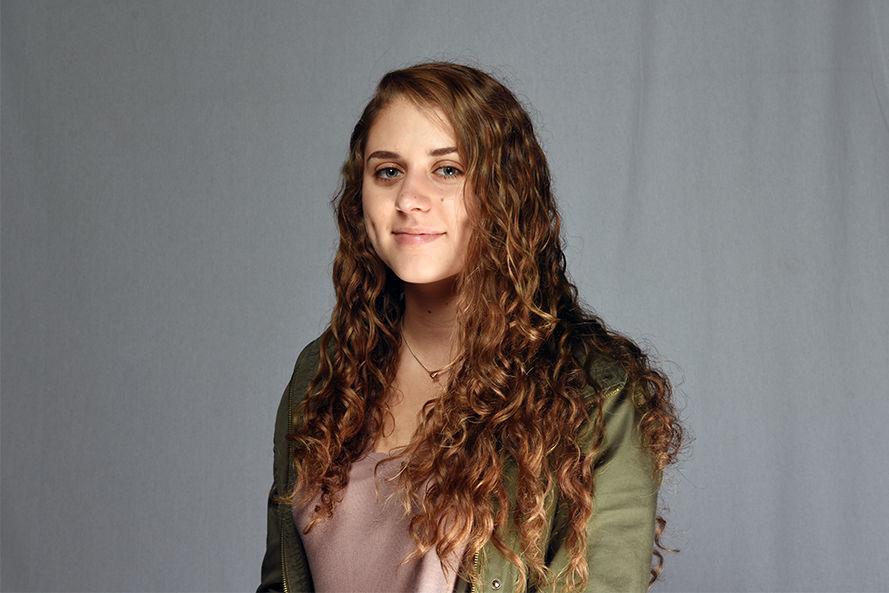
Elena Price
Elena Price
Last week while eating lunch and talking politics with a friend, I was stunned when she told me she wasn’t planning on voting. Throughout all of the concern and confusion of who to vote for, it never occurred to me that not voting was an option. I was under the impression that many of my peers were as excited as I am to finally have a say in who will lead our country.
Despite the urgent pleas to vote by numerous politicians and officials, including our current president, Barack Obama, there are still young people that are not going to vote come Nov. 8. Although I am not a well-known political figure or celebrity, I, as your fellow NC State peer who cares about the future of this country, urge you to vote.
Election Day is not just about choosing our next commander in chief — there are numerous other positions on the ballot that need to be filled. The further down the ballot you go, the more direct impact that position will have on your life. You have a voice in who should become a new U.S. senator, congressman, governor and countless others. Also, the amount of power the president has depends on who controls the Senate and the House of Representatives. Therefore, choosing these politicians is almost as important as choosing our president.
Our country becomes a more vibrant democracy when more people vote. Civic engagement is critical for any democracy to survive. By definition, a democracy is “a system of government by the whole population or all the eligible members of a state.” If that’s true, it’s hard to make the case that we have a democracy when the 2008 presidential debate drew the most voters since 1968, and yet more than four out of 10 eligible voters stayed home, according to the Huffington Post.
The most common excuse I hear is why vote if my vote doesn’t matter? Statistically speaking, it is highly unlikely that your vote will be the deciding factor in an election; but history shows that the margin of victory does matter.
The most common example is the 2000 election between George W. Bush and Al Gore. The difference in votes for the Bush-Gore election was in the hundreds. Furthermore, a 1982 Missouri state house race resulted in the winner earning 4,819 votes compared to the loser’s 4,818. In this election, North Carolina could be the deciding state in who wins enough electoral votes. Your vote matters because “even though it’s utterly unlikely that an individual vote will decide a large-scale election, the group of all voters will do so,” as Gary Gutting writes in The New York Times.
If you find that you are unable to choose either of the two main presidential candidates, picking a third-party candidate is a completely valid choice. If you are choosing a third-party candidate because you are a huge fan and want them to be our next president, you are most likely out of luck, but history has shown that their presence can alter the election. Take Ralph Nader’s third-party bid in 2000 or even Theodore Roosevelt’s Bull Moose Party in 1912; both cost presidential candidates from winning.
Don’t take this constitutional right for granted. It’s a right we’ve struggled to win, and people in other countries are still struggling to earn. Many countries have limited suffrage, including the United Arab Emirates, Brunei and Lebanon, among others.
If you cast your vote, you are also casting the right to complain about the results and the health of our country. Your complaint has much less weight if you did not voice your opinion on Election Day, where you can actually be part of a change. Therefore, empower yourself by voting.
There are 44 million millennials eligible to vote. Even if you are not voting in the state you grew up in, those in power for the next four years will affect you. Your vote influences your life now, as well as after college.
There is no need to wait until Nov. 8 to vote. Early voting in North Carolina began Oct. 20 and is currently taking place in the NC State Creative Services Building located at 1220 Varsity Drive. This early voting site is open weekdays from 9 a.m. to 7 p.m.
On Election Day, our own Student Government will be sponsoring free buses to take students from Talley Student Union to the nearest polling site at Pullen Community Center. These buses will be departing every 15 minutes starting at 10 a.m. until the polls close. If you are registered to vote at your current on-campus address, I urge you take advantage of this voting opportunity.
As Chris Wallace from FOX News said at the third and final presidential debate, “Now the decision is up to you … One thing everyone here can agree on: we hope you will go vote. It is one of the honors and obligations of living in this great country.”